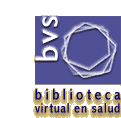

|
Report on the 1st Regional Coordination Meeting
of the Virtual Health Library.
At the meeting in Washington, D.C., during the first week of December, 1999, the several organisations involved reported on the progress that had been achieved and the conference proceedings will show that an impressive volume of work has been achieved in the larger countries of South America. The use of Scientific Electronic Online (SciELO) Methodology as a common standard for the publishing of the full text of a wide range of documents, e.g. journals, epidemiological reports, government documents, theses, etc., coupled with the application of DeCS, (the acronym of the Spanish for Descriptors in Health Science), - VHL's common language for the description, indexing and retrieval of decentralised multilingual information sources - operates to maximise the usefulness of this cooperative effort. (A search in one language retrieves hits in all languages.) Several issues arising directly from these developments were addressed at the Washington conference. The fact that decentralisation spreads the responsibility for quality control was recognised as significant in an area as sensitive as health information. Copyright concerns were acknowledged but were seen as applicable to the much wider use of the Internet in a variety of other subject areas. It was tacitly agreed that the control of copyright would have to be prosecuted on the general front and that the Virtual Health Library would fall in line. Perhaps this oversimplifies the issue since copyright legislation may differ from country to country, and even where international treaties exist the rate of accession by the several countries may vary. It was also noted that there is not yet universal access to the Internet. Therefore the publishing of material on the web disproportionately favours the educated, the well to do and the city dweller. There is thus the need to plug the gaps and the provision of access through cyber cafés, public library terminals and the like, is needed to reach all who need the information. My own report about the situation in Barbados spoke more to the future than to the past. I acknowledged that there is very little by way of journal publications in the field of health being published in Barbados. There are however various monographic items, reports, consultancies, and locally authored articles appearing in journals published outside of Barbados - indeed outside the Caribbean.. It will be possible for us to identify those which are within the guidelines and to make arrangements, subject to copyright restrictions, for contributing them to the Virtual Health Library. I referred to the plans for improving the physical facilities at the Medical Library at the Queen Elizabeth Hospital, (for the benefit of those involved in the University's clinical teaching programme and those whose functions are connected to the provision of general health care at the island's only public hospital), and the fact that there is now great enthusiasm in Government quarters, where responsibility for that library still resides, for the appropriate utilisation of computers. These developments will permit that library to contribute to and benefit from the creation of the Virtual Health Library. The Main Library at Cave Hill, identified as the National Coordinating Centre in Barbados, receives very little material which matches the guidelines, and what it does receive is almost certainly duplicated at the Medical Library. So far the Main Library's function has been mainly administrative. However, it is on the point of establishing an online public access catalogue of material held in house and future possible developments in this area include the incorporation of the other collections in the University's libraries, on campus as well as off campus, and the availability of access to this expanded resource via the Internet. This would be a significant contribution to the Virtual Health Library, and would involve the active collaboration of the Computer Centre at the Cave Hill Campus which has the responsibility of ensuring that all the University departments have access to modern communication technology. Of the other libraries in Barbados which are in a position to make a contribution, the National Library is an important resource in relation to historical documents, And the PAHO library, with its responsibility for the Caribbean region, has already made proposals for the establishment of a Virtual Caribbean Public Health Community. Though representing a subset in relation to subject content, (a practice that now seems well established - other subsets that have been developed in various countries relate to health legislation, food and nutrition, disasters, toxicology, environmental health, teenagers, etc.), this initiative argues for the direct involvement of all the principals, the producers, the intermediaries, and the end users, with provision expressly made for feedback from the users. At the end of the Washington conference a number of resolutions were adopted. The official English version is not yet available. It will be attached as an appendix to this report as soon as it comes to hand. We can expect a visit from Abel Packer, the Director of BIREME, in February or March, 2000. Other dates of relevance are:- July 2-5, 2000 8th International Conference
on Medical Librarianship, London. Main Library, December 17, 1999.
|